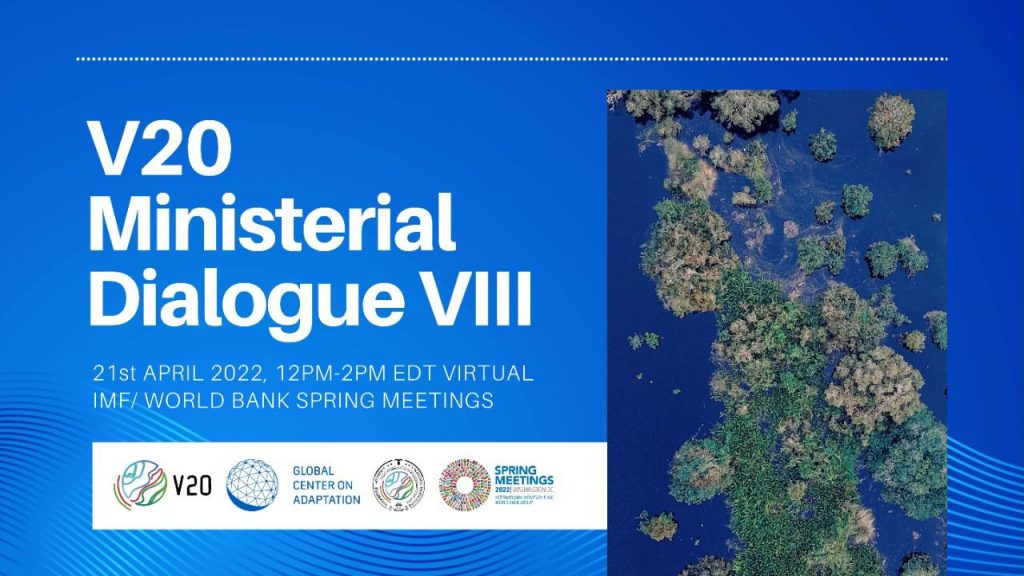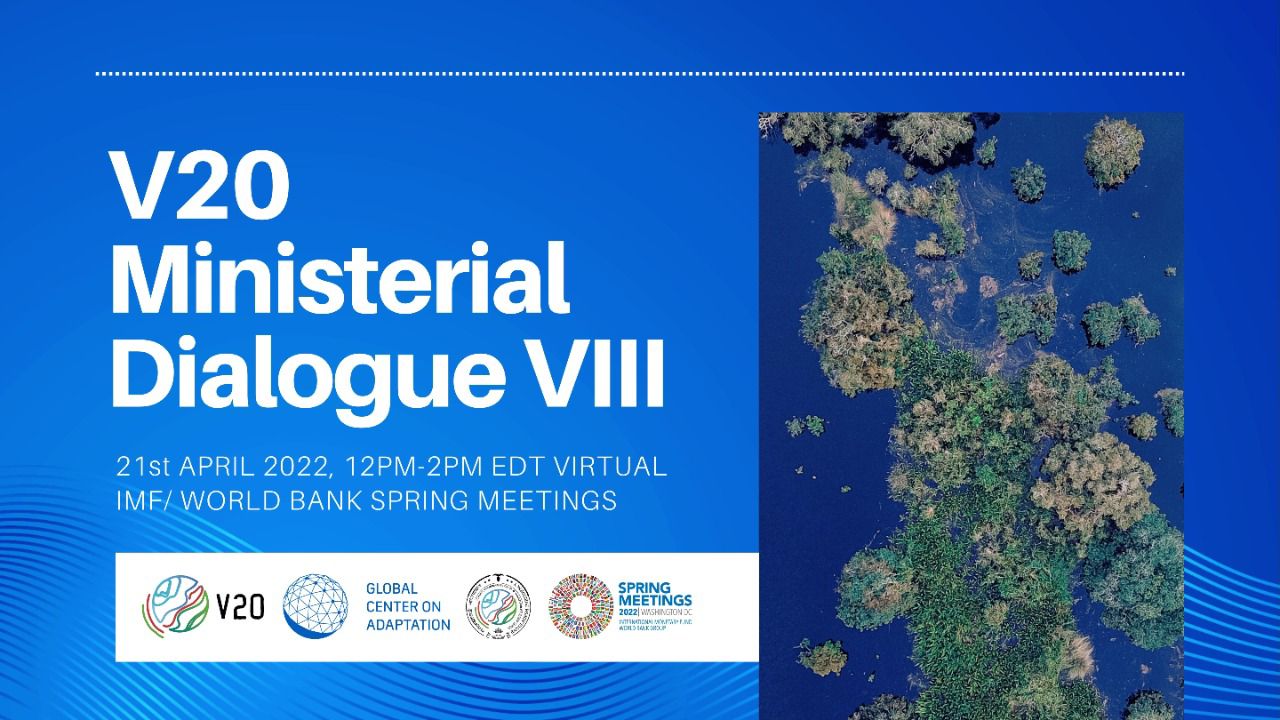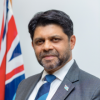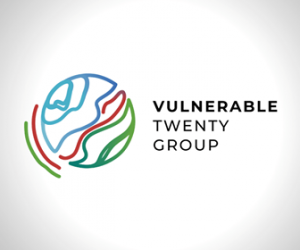Statement delivered by H.E. Aiyaz Sayed-Khaiyum, Hon. Minister of Economy, Civil Service and Communications, Republic of Fiji

V20 MINISTERIAL DIALOGUE VIII- 21 April, 2022
Statements
10:00 pm Dhaka time/12:00 pm Washington DC time
Statement delivered by H.E. Aiyaz Sayed-Khaiyum, Hon. Minister of Economy, Civil Service and Communications, Republic of Fiji
H.E. Aiyaz Sayed-Khaiyum
Hon. Minister of Economy, Civil Service and Communications, Republic of Fiji
Dear excellencies, V20 members, Ladies and gentlemen, Bula Vinaka to you all. The headline conclusion from the IPCC adaptation report that climate change poses an unequivocal threat to human well-being and the health of the planet is not news to this group. Nor is the finding that even those small islands and developing countries have contributed the least to climate change the changing climate is already harming our economies. The world is finally accepting the scale of the climate threat we are facing. Now, the question is whether they will help us finance solutions that we need. The current answers are not encouraging. The size, scope and speed of climate finance we need dwarfs what has been made available so far. And what is available is out of touch with the needs of small island developing states, particularly on adaptation. Before COP26, developed countries refused to acknowledge that financing for loss and damage should be separated from finance for adaptation or even discussed at all as a separate issue. At COP26, Fiji and the SIDS helped to open the dynamic of denial. We secured an agreement to formally discuss the arrangements to fund loss and damage, and that was the birth of the Glasgow dialogue on loss and damage. These are small wins, but they are not enough to seriously confront a crisis of such enormous scale. So Fiji is grateful that the V20 is continuing to push for more support, innovation and accountability. And we will contribute all the energy, political capital, and credibility that we can to this effort. Specifically, we would welcome a V20 push for the International Monetary Fund and the World Bank to explore and propose well-structured debts for nature swaps, with other structural financing changes so that vulnerable countries can finance climate adaptation without endangering our debt sustainability or access to markets. Building climate resilience, adaptation and post disaster reconstruction is not cheap, especially for small island developing states. Because our fiscal resources are already stretched to the limit. We still have a lot of work to do to develop resilient infrastructure and ensure that our people have full access to vital public services. The devastating Covid-19 pandemic unleashed an economic catastrophe and created socio-economic challenges that have strained the fiscal situation even further. Debt levels have increased significantly, and the need for highly concessional loans and budget support grounds from development partners is even more urgent now. The cost of debt needs to become more concessional with longer repayment terms. And it is critically important that our development partners recognise countries’ specific vulnerabilities and take them fully into account when making decisions on providing access to affordable climate finance. There is also a need to have a more nuanced approach to assessing debt sustainability that takes into account specific country characteristics and vulnerabilities. It is important to recognise that debt sustainability cannot be measured solely with a crude and simplistic tool of debt to GDP ratio. We need to use a wider array of risk indicators and ratios to assess debt sustainability. This would paint a more accurate picture of the economic health of each country and will not unduly restrict an individual country’s ability to borrow for building climate resilience. In the last 2 years, the Fijian government was able to access an approximately 900 billion dollars in highly concessional financing from the International Development Association or IDA of the World Bank and Japan International Cooperation Agency (JICA) with a 40 year repayment terms, inclusive of 10 year grace period and near 0 interest rates, resulting to an approximately 57 to 67% grant element. To access this concessional facilities, the government lobbied for the World Bank group to recognise the Fijian economies vulnerability to climate change and natural disasters, as Fiji being an upper-middle income country could not initially access IDA funding priority 2020. ADB has also recognised Fiji’s vulnerability to climate change and natural disasters and has offered us concessional financing. Although debt level has increased in nominal terms, there is significant improvement in terms of debt matrix, specifically weighted average interest rates, average terms of maturity and average terms of refixing. Cheaper external debt and declining domestic market rates have resulted in an overall reduction in the cost of government debt. Development partners need to account for the improvement in debt matrix, as there is an additional fiscal space given that future debt servicing is significantly less than if contracted on normal market terms. We of course cannot overstate the urgency of finding appropriate financial responses to climate challenge. And the V20 must lead this charge. We must continue to raise our voices, of course, but that is not enough. We must use all the tools at our disposal, exploit every relationship we have, and travel every road we must travel but we must get it done, push for greater climate ambition where we can, shame for greater climate ambition where we must and insist on faster and more effective action on climate change. Our survival demands no less. Vinaka vaka levu and Thank you very much.
[END]




